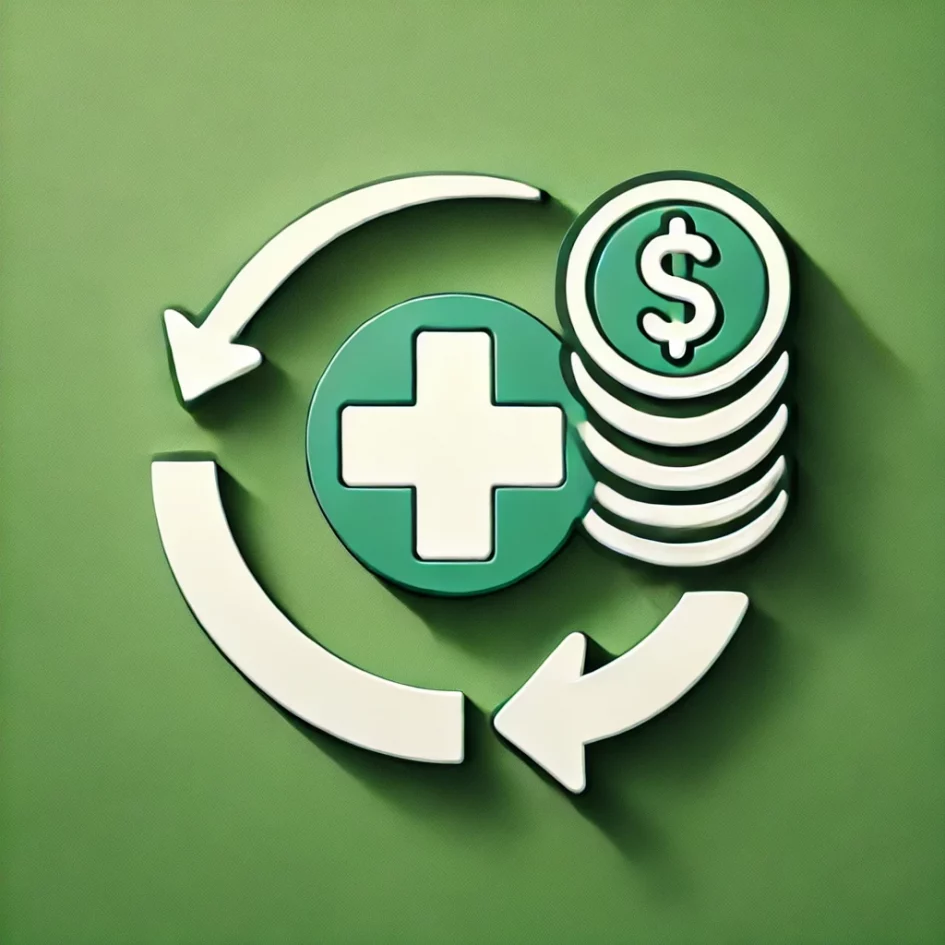Medical expenses can often come as a surprise, and for many individuals and families, even with insurance, the cost of healthcare can be overwhelming. From surgeries and emergency treatments to prescriptions and routine care, medical bills can add up quickly. For those who are facing large out-of-pocket healthcare expenses, personal loans for medical costs can be an effective way to manage these financial burdens without derailing your financial stability.
Personal loans for medical expenses are a flexible option, offering immediate access to funds for a wide range of healthcare-related costs. Unlike traditional loans that require collateral, such as a mortgage or auto loan, personal loans are unsecured, meaning they don’t require any assets to back them. This can make them accessible to individuals who need quick financing to cover medical procedures, treatments, or emergency care.
Why a Personal Loan Can Help with Medical Expenses
Healthcare costs are one of the leading causes of financial stress. Whether it’s an emergency room visit, surgery, or specialized care, the expenses can be difficult to manage, especially when insurance doesn’t cover everything. Personal loans provide the ability to:
- Cover Uninsured Procedures: Many elective surgeries or treatments, such as dental work, fertility treatments, or cosmetic surgeries, are not covered by insurance plans. A personal loan offers a way to finance these procedures upfront, and spread the costs over time through monthly payments.
- Pay Off Medical Debt: For those who already have existing medical debt, a personal loan can help consolidate those bills into one payment. This can simplify your finances and allow for better management of your medical debt, especially if it comes with a fixed interest rate.
- Manage High Co-Payments and Deductibles: Even with comprehensive insurance, high deductibles or co-payments can create a financial strain. Personal loans can bridge the gap, ensuring that necessary medical care is accessible without the immediate financial burden.
- Get Immediate Access to Care: In cases of emergency or urgent care, waiting to gather funds can delay necessary treatments. With a personal loan, you can quickly secure the funding needed for immediate medical attention, helping avoid delays in care.
Advantages of Using Personal Loans for Medical Costs
Taking out a personal loan for medical expenses can offer several advantages, particularly for individuals who need quick access to funds:
- Quick Approval Process: Many personal loan providers, including SkyCap Financial, offer fast and easy online applications, allowing borrowers to receive a decision within minutes. This is crucial when time-sensitive medical care is required.
- Fixed Monthly Payments: Unlike credit cards or other revolving credit options, personal loans have fixed monthly payments. This means you know exactly what to expect each month, making it easier to budget for your medical expenses.
- Lower Interest Rates: Personal loans generally offer lower interest rates compared to credit cards, especially for borrowers with good credit. This can save you money over the life of the loan.
- No Collateral Required: Since personal loans are unsecured, you don’t need to worry about risking assets such as your home or car. This makes personal loans a more accessible option for those without valuable property to use as collateral.
Key Considerations Before Applying for a Personal Loan
While personal loans can be a valuable tool for managing medical expenses, it’s important to understand the terms and conditions before applying. Consider the following:
- Interest Rates and Terms: Depending on your credit score and financial history, the interest rates on personal loans can vary. Be sure to shop around and compare rates from different lenders to find the best option for your needs.
- Loan Fees: Some personal loans may come with fees, such as origination fees, prepayment penalties, or late payment charges. Be sure to read the fine print and understand all the potential costs associated with the loan.
- Repayment Period: Personal loans typically offer repayment terms ranging from one to five years. Choose a term that offers a balance between affordable monthly payments and a reasonable overall cost of borrowing.
- Impact on Credit Score: As with any loan, taking out a personal loan will impact your credit score. Ensure you have a plan in place to make consistent payments to avoid negatively affecting your credit.
- Other Financing Options: Before opting for a personal loan, consider alternative options such as negotiating a payment plan with your healthcare provider, using a medical credit card, or exploring financial assistance programs. In some cases, these options may offer lower or no interest financing.
Conclusion
Medical expenses can be an unexpected and overwhelming financial burden, but a personal loan offers a flexible and accessible way to manage these costs. With fixed interest rates, predictable monthly payments, and quick access to funds, personal loans can help cover a wide range of medical expenses, from emergency care to elective procedures. However, it’s important to weigh all your options, understand the loan terms, and ensure that you have a clear repayment plan before taking on new debt.
For more information on personal loans and to explore your options, visit SkyCap Financial and see how they can help you manage your medical expenses with flexible loan options tailored to your needs.







